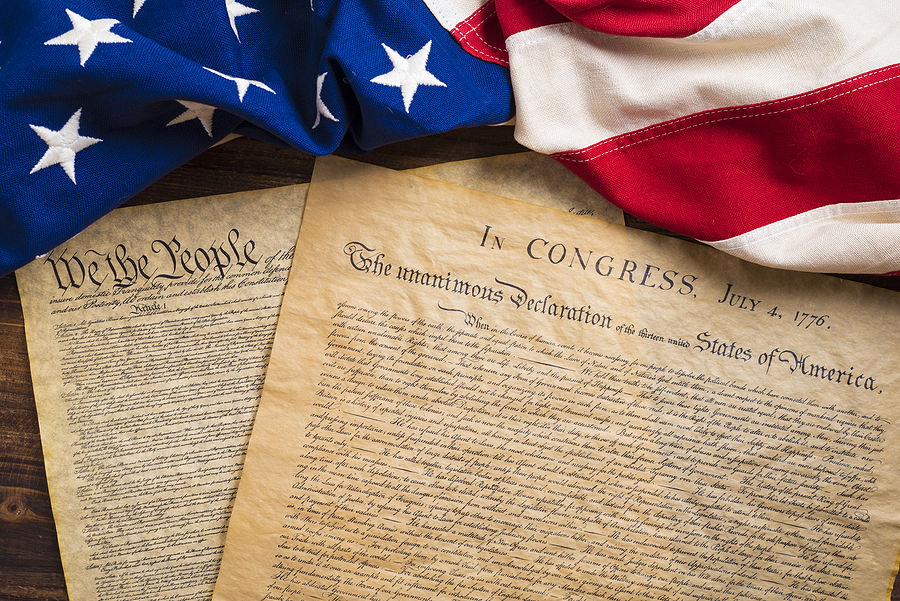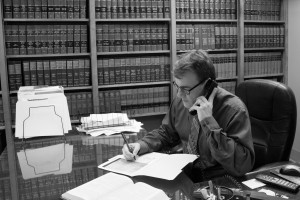Navigating the criminal justice system can be an intimidating experience. If you are accused of a crime, understanding your fundamental rights is the first step toward ensuring a fair process. The Sixth Amendment to the U.S. Constitution is a cornerstone of these protections, guaranteeing specific rights to individuals facing criminal prosecution.
This amendment is not just a collection of legal terms; it is a set of promises designed to protect citizens from unfair treatment and ensure that justice is administered transparently. It provides the framework for a fair trial, from the moment you are charged to the final verdict. Understanding these rights is crucial for anyone involved in the criminal justice system, as they are essential for mounting an effective defense.
This guide will break down the key components of the Sixth Amendment, explaining what each right means and why it matters.

Key Components of the Sixth Amendment
The Sixth Amendment contains several distinct rights that work together to ensure a fair trial. These protections are vital for balancing the power between the state and the individual. Let’s explore the essential rights guaranteed by this amendment.
The full text of the Sixth Amendment is:
“In all criminal prosecutions, the accused shall enjoy the right to a speedy and public trial, by an impartial jury of the State and district wherein the crime shall have been committed, which district shall have been previously ascertained by law, and to be informed of the nature and cause of the accusation; to be confronted with the witnesses against him; to have compulsory process for obtaining witnesses in his favor, and to have the Assistance of Counsel for his defence.”
We will now examine each of these protections in detail.
The Right to Counsel
Perhaps the most well-known provision of the Sixth Amendment is the right to counsel. This means that an individual accused of a crime has the right to be represented by an attorney. This right is fundamental because the legal system is complex, and navigating it without expert guidance is nearly impossible.
When Does This Right Apply?
The right to counsel applies at all “critical stages” of a criminal prosecution. This begins as soon as formal charges are filed and extends through trial, sentencing, and the first appeal. The landmark Supreme Court case, Gideon v. Wainwright (1963), established that the state must provide an attorney to defendants who cannot afford one, ensuring that a person’s financial situation does not determine the quality of their legal defense.
An attorney’s role is to advocate for the defendant, challenge the prosecution’s evidence, and ensure their rights are protected throughout the process.
Right to a Speedy and Public Trial
The Sixth Amendment guarantees that a trial must be both “speedy” and “public.” These two requirements serve different but equally important functions.
Speedy Trial
The right to a speedy trial prevents defendants from being held in jail for an extended period before their case is heard. It also ensures that evidence remains fresh and witness memories are still reliable. What constitutes “speedy” is not defined by a specific time frame. Instead, courts consider factors like the length of the delay, the reason for it, and whether the delay has harmed the defendant’s ability to present a defense.
Public Trial
The requirement for a public trial promotes transparency and accountability in the justice system. When trials are open to the public, it helps ensure that proceedings are conducted fairly and discourages any potential misconduct by judges, prosecutors, or other officials. This transparency builds public trust in the legal process and allows for public scrutiny.
Book a Free Indianapolis Case Evaluation Now ✏
The Right to an Impartial Jury
Every defendant has the right to be judged by a jury of their peers. The Sixth Amendment specifies that this jury must be “impartial,” meaning its members should not have preconceived biases that would prevent them from rendering a fair verdict based on the evidence presented.
How is an Impartial Jury Selected?
The process of selecting a jury, known as voir dire, is designed to identify and remove potential jurors who may be biased. Attorneys for both the prosecution and the defense can question prospective jurors to uncover any prejudices. The goal is to assemble a jury that represents a fair cross-section of the community and is capable of making a decision based solely on the facts of the case.
Confrontation of Witnesses
The Confrontation Clause gives defendants the right “to be confronted with the witnesses against him.” This means that the prosecution’s witnesses must testify in open court, under oath, and be subject to cross-examination by the defense.
This right is crucial for several reasons. It allows the defendant and the jury to observe the witness’s demeanor, which can help in assessing their credibility. More importantly, cross-examination gives the defense an opportunity to challenge the witness’s testimony, point out inconsistencies, and expose any potential biases or motives. This process is a fundamental tool for testing the truthfulness of the evidence presented against the accused.
Obtaining Witnesses
In addition to confronting witnesses against them, defendants also have the right to present their own witnesses. The Sixth Amendment guarantees the “compulsory process for obtaining witnesses in his favor.”
This gives defendants the power to subpoena witnesses, meaning they can legally require individuals to appear in court and testify on their behalf. This right ensures that a defendant has a fair opportunity to present their side of the story and introduce evidence that supports their innocence.
In Summary
The Sixth Amendment provides a robust set of protections designed to ensure fairness and justice for anyone accused of a crime. From the right to a skilled attorney to the guarantee of a speedy and public trial by an impartial jury, these rights are the bedrock of the American criminal justice system. They prevent the government from exercising unchecked power and ensure that every individual has the opportunity to mount a meaningful defense.
Understanding these rights is the first step, but navigating the complexities of a criminal case requires professional legal expertise. If you are facing criminal charges in Indianapolis, protecting your rights is paramount. Contact Us Today for a free, confidential case review to discuss your situation and learn how we can help defend your freedom.
Related Post: Understanding Civil Rights in the United States



